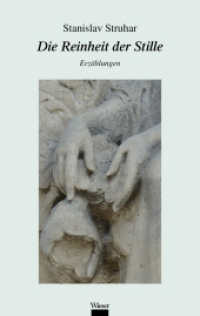Full Description
With contributions from international policing experts, this book is the first of its kind to bring together a broad range of scholarship on translational criminology and policing. Translational criminology aims to understand the obstacles and facilitators to implementing research by decisionmakers to improve effectiveness, fairness, and efficiency in the criminal justice system. Although the emergence of the translation of knowledge from research to policy and practice has gained momentum in policing in recent years, it is imperative to understand the specific mechanisms required to create collaborative structures to produce and disseminate information. This progressive and cutting-edge collection of articles addresses the growing interest in creating and advancing evidence-based policing through translational mechanisms. It describes a varied, dynamic, and iterative decision-making process in which researchers and practitioners work simultaneously to generate and implement evidence-based research. Not only does this book incorporate a process for translating criminological information, it offers varying perspectives on researcher-practitioner partnerships around the world.
Translational Criminology in Policing provides practical principles to help research, practitioner, and policymaker audiences facilitate evidence translation and research-practitioner partnerships. It is essential reading for policing scholars and policymakers, and may serve as a reference and textbook for courses and further research in translational criminology in policing.
Contents
Foreword by David Weisburd; PART I: An Introduction to Translational Criminology in Policing; 1. Translational Criminology in Policing; PART II: The Process for Translating Evidence; 2. A Four-Phase Process for Translating Research into Police Practice; 3. Creating a 'What Works' Translational Tool for Police: A Researcher-City Government Partnership; 4. Translating Police Research into Policy: Some Implications of the National Academies Report on Proactive Policing for Policymakers and Researchers; 5. Making Sense of Evidence: Using Research Training to Promote Organisational Change; PART III: Researcher Practitioner Partnership; 6. Present but Not Prevalent: Identifying the Organizational Correlates of Researcher-Practitioner Partnership in U.S. Law Enforcement; 7. On Creating Ethical, Productive, and Durable Research Partnerships with Police Officers and Their Departments: A Case Study of the National Justice Database; 8. Openness to Research and Partnerships in Policing; 9. Partnerships and Pitfalls: Insights from an Incomplete Evaluation of Police Training; 10. Pracademic Insights from Police Research on Open Drug Scenes in Sweden; PART IV: International Perspectives on Translational Criminology in Policing; 11. Proclivity to Rely on Professional Experience and Evidence-Based Policing; 12. Cincinnati to Glasgow: A Case Study of International Policy Transfer of a Violence Reduction Program; 13. Translational Criminology in the Antipodes: A Tale of Trials, Tribulations and (Sometimes) Triumph








